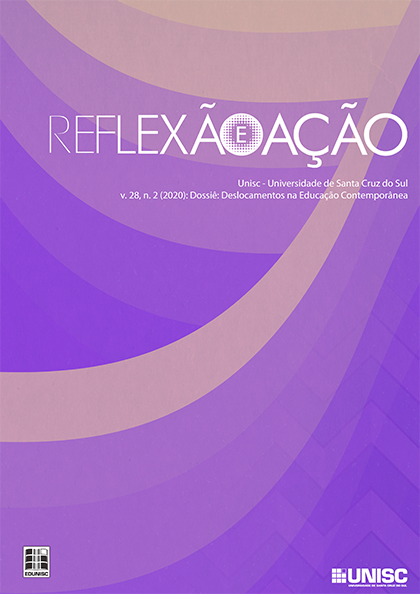Decolonizing knowledge in research on education: the thought other as an epistemic strategy for the diversified academic production
DOI:
https://doi.org/10.17058/rea.v28i2.14298Keywords:
Decoloniality of knowledge, Education Research, Epistemology.Abstract
In this work we aim to analyze how the coloniality of knowledge structures the university centers, especially the production of research works in education. Initially, we developed some of the themes offered by the thinkers of the so-called "decolonial gyro" about a revision of the epistemological understandings prevailing in the Latin American continent and the different ways to constructing a knowledge-other as a criticism not only of the hegemonic epistemological bases, but also of the socio-political and cultural implications. From this, we analyze the place of the intellectual and academic institutions in the face of the challenge of reconceptualizing research work in the field of education. Methodologically oriented by a critical reflection from a bibliographical study, we argue in favor of the need for a decolonization of the university, that deconstructs the monopolistic visions of the world to account for the plurality of possible worlds, going beyond the western and modern cosmovisions. This is done by rethinking not only the epistemological points of departure but also from concrete transformations at the institutional level, which includes more flexible and plural curriculum designs, and the diverse academic production, specifically in this case, in regard to research in education, for this to articulate various epistemologies and not only the currents of the European monopoly academy.Downloads
Downloads
Published
How to Cite
Issue
Section
License
The submission of originals to this journal implies on the transference, by the author(s), of the printed and digital publishing rights. The author´s rights to the published articles are the author´s, the journal has the rights over the first publication. The author(s) can only use the same results in other publications, indicating clearly that this journal was the original publisher. Since we are an open access journal, the free use of articles is permitted for educational and scientific applications, as long as they inform the source according with the CC-BY license from Creative Commons.


